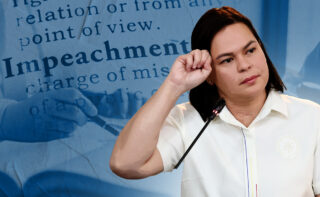MANILA, Philippines–Demand compensation directly from the airline, and not from the Civil Aeronautics Board (CAB), a CAB official has advised passengers inconvenienced by the delays and flight cancellations at the Ninoy Aquino International Airport (Naia) Terminal 3 during the holiday rush.
“It would be easier and faster to demand compensation directly from the airline,” according to Wyrlou Samodio, chief of the CAB legal department, who described the agency as a quasijudicial body that penalizes violators in the air transport sector, but has no power to award compensation.
He added, however, that one of the responsibilities of the CAB was to make sure that all aggrieved passengers were duly compensated.
According to CAB Economic Regulation No. 7, passengers denied boarding on domestic flights must be given 10 percent of the value of the unused sector plus P 3,000. For international flights, they should be given 100 percent of the value of the unused sector plus P5,000, or its equivalent in other currencies.
The government body is leading a probe of Cebu Pacific Air (CEB) over the holiday chaos at Naia 3 on Dec. 24 when its undermanned counters led to an overflow of passengers, some of whom missed their flights.
Aside from the CAB, the Manila International Airport Authority and the Civil Aviation Authority of the Philippines are looking into CEB’s liability in the airport fiasco.
Samodio said the CAB had already requested CEB to provide them with the documents on the passengers it had already compensated. He added that 40 passengers had lodged official complaints against CEB over their airport ordeal.
Unmanned counters, air traffic congestion and an overcrowded terminal were among the reasons cited by CEB for the chaotic situation at the airport on Dec. 24, 25, and 26.
In Congress, Bayan Muna Representatives Neri Colmenares and Carlos Zarate said they would file a resolution next year asking the country’s aviation watchdog to explain why it had failed to protect air travelers from excessive fares and the atrocious service of airlines.
In their resolution, the party-list representatives said the problems faced by passengers in the Cebu Pacific fiasco–delayed or canceled flights, expensive rebooking fees, and deceptive marketing practices–had become a “common occurrence” at the airports.
The lawmakers said the CAB had to explain why it could not keep the industry players in check when they had been reduced to only two main participants–Cebu Pacific and Philippine Airlines.


